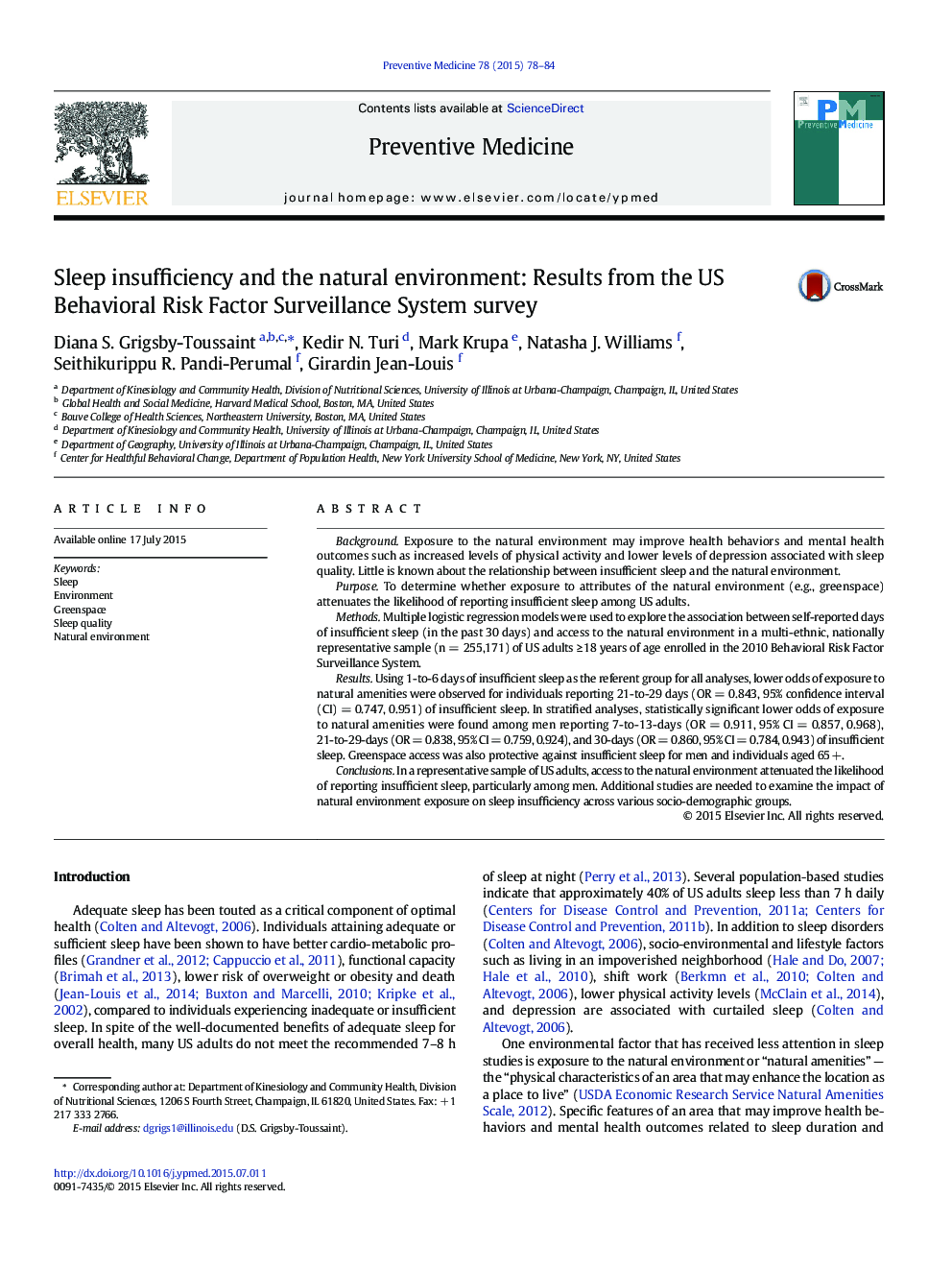| کد مقاله | کد نشریه | سال انتشار | مقاله انگلیسی | نسخه تمام متن |
|---|---|---|---|---|
| 3100412 | 1581636 | 2015 | 7 صفحه PDF | دانلود رایگان |
• Exposure to the natural environment influences sleep quality.
• Insufficient sleep among men and individuals aged 65 + was attenuated by the natural environment.
• Preserving the natural environment may be important for improving sleep quality.
BackgroundExposure to the natural environment may improve health behaviors and mental health outcomes such as increased levels of physical activity and lower levels of depression associated with sleep quality. Little is known about the relationship between insufficient sleep and the natural environment.PurposeTo determine whether exposure to attributes of the natural environment (e.g., greenspace) attenuates the likelihood of reporting insufficient sleep among US adults.MethodsMultiple logistic regression models were used to explore the association between self-reported days of insufficient sleep (in the past 30 days) and access to the natural environment in a multi-ethnic, nationally representative sample (n = 255,171) of US adults ≥ 18 years of age enrolled in the 2010 Behavioral Risk Factor Surveillance System.ResultsUsing 1-to-6 days of insufficient sleep as the referent group for all analyses, lower odds of exposure to natural amenities were observed for individuals reporting 21-to-29 days (OR = 0.843, 95% confidence interval (CI) = 0.747, 0.951) of insufficient sleep. In stratified analyses, statistically significant lower odds of exposure to natural amenities were found among men reporting 7-to-13-days (OR = 0.911, 95% CI = 0.857, 0.968), 21-to-29-days (OR = 0.838, 95% CI = 0.759, 0.924), and 30-days (OR = 0.860, 95% CI = 0.784, 0.943) of insufficient sleep. Greenspace access was also protective against insufficient sleep for men and individuals aged 65 +.ConclusionsIn a representative sample of US adults, access to the natural environment attenuated the likelihood of reporting insufficient sleep, particularly among men. Additional studies are needed to examine the impact of natural environment exposure on sleep insufficiency across various socio-demographic groups.
Journal: Preventive Medicine - Volume 78, September 2015, Pages 78–84
